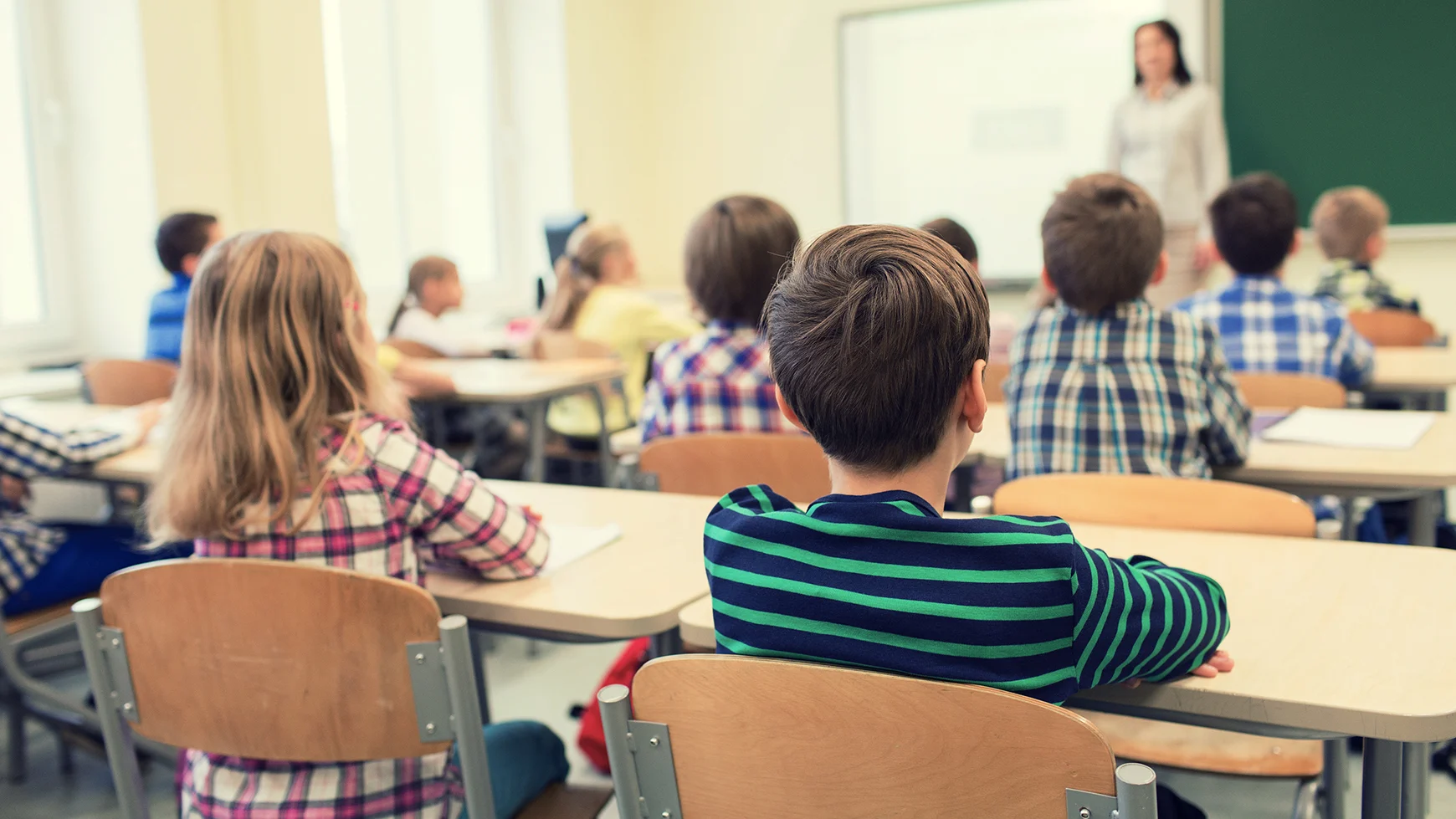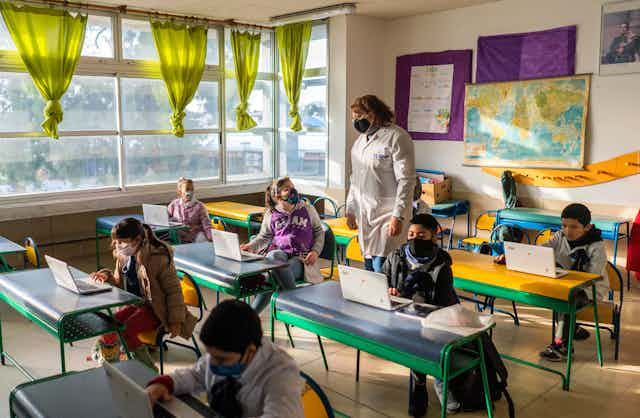Explore the Challenges Facing Our Community: Save Temecula Schools
Explore the Challenges Facing Our Community: Save Temecula Schools
Blog Article
How Schools Play a Crucial Duty in Shaping Future Leaders and Innovators
By integrating project-based discovering and interdisciplinary research studies, educational institutions challenge trainees to assess and manufacture complicated details. Educators offer as coaches, guiding trainees and nurturing their potential, while extracurricular activities better develop leadership skills and strength.
Promoting Crucial Assuming
In today's rapidly developing globe, promoting crucial assuming within schools has actually come to be paramount. As culture grapples with increasingly complex global obstacles, the capability to assess, review, and manufacture information is essential. Colleges play an essential role in establishing these skills, preparing trainees to browse and resolve multifaceted issues with educated, reasoned choices.
To cultivate critical reasoning, instructors employ different instructional strategies that motivate energetic knowing and intellectual engagement. Classroom discussions, problem-based knowing, and Socratic questioning contribute in promoting reflective and logical mind. By challenging pupils to interrogate presumptions and think about numerous viewpoints, these approaches make sure a much deeper understanding of subject matter past memorizing memorization.
In addition, incorporating vital believing throughout the curriculum enhances its value and applicability in diverse contexts. Topics such as maths, science, background, and literature each deal one-of-a-kind possibilities to create trainees' essential professors. For example, examining historical events calls for reviewing sources and understanding context, while clinical query needs strenuous theory screening and evidence-based thinking.
Inevitably, instilling critical assuming abilities in students equips them with the cognitive devices required for lifelong understanding and flexibility. It is with this fundamental competence that future leaders will certainly have the ability to introduce, resolve problems, and contribute meaningfully to society.
Motivating Creative Thinking
Embracing creative thinking within educational structures galvanizes students to believe beyond traditional boundaries and discover innovative options. By integrating imaginative ventures and imaginative reasoning exercises into the curriculum, schools cultivate an atmosphere where creativity and imaginative thought are valued. This method not just enriches the educational experience but also outfits pupils with the capacity to deal with real-world obstacles in unique ways.
School can foster imagination through varied means such as project-based understanding, interdisciplinary researches, and the consolidation of arts and innovation. Project-based understanding, as an example, encourages students to apply their knowledge in useful, usually collaborative, tasks that require creative problem-solving abilities. Interdisciplinary studies allow trainees to attract connections between different subjects, thereby widening their point of views and improving their innovative capabilities.
Moreover, offering pupils with chances to involve with emerging technologies, such as coding and electronic style, even more supports their innovative possibility. These tasks trigger students to experiment, fall short, and repeat, which are critical parts of the imaginative process (Save Temecula Schools). By keeping a helpful setting where trial and error is encouraged, schools can ensure that trainees develop the self-confidence to go after innovative concepts
Fundamentally, supporting imagination in instructional setups is crucial for forming future leaders and innovators efficient in dealing with intricate global concerns with ingenuity.
Supporting Partnership

Implementing group-based discovering modules and participating jobs permits pupils to experience the characteristics of synergy firsthand. This not just prepares them for the collaborative nature of modern-day workplaces however likewise nurtures management high qualities as they frequently have to take on duties such as task managers or group planners. Furthermore, partnership in the class can break down social barriers and advertise inclusivity, ensuring that each student really feels valued and heard.
Furthermore, integrating modern technology can even more support collaborative efforts. Devices like shared interactive platforms and digital work spaces make it possible for pupils to work with each other efficiently, even outside the class. As students create these collaborative skills, they are better furnished to tackle intricate difficulties and introduce, preparing for their future duties as leaders and innovators.
Duty of Teachers as Coaches

Mentorship involves tailored focus, where teachers recognize and nurture private staminas and address weak points. Save Temecula Schools. Through individually interactions, educators can tailor their advice and support to fulfill each trainee's unique requirements, fostering a sense of confidence and strength. This individualized strategy grows a growth way of thinking, encouraging pupils to watch failings as possibilities for discovering and development
In addition, instructors function as good discover here example, demonstrating the worths of empathy, willpower, and honesty. Their attitudes and activities supply a plan for students to emulate, instilling a feeling of moral duty and social understanding. By producing a helpful and comprehensive classroom atmosphere, educators make it possible for pupils to establish interpersonal skills that are crucial for effective management.
Basically, the mentorship provided by instructors lays a fundamental structure for the growth of future leaders, furnishing them with the expertise, abilities, and worths needed to master an ever-evolving world.
Influence of Extracurricular Activities
When integrated effectively into the instructional structure, after-school activities significantly boost student development and management capacity. These tasks offer trainees with opportunities to check out interests past the conventional curriculum, promoting a versatile ability set. Clubs, sports groups, and arts programs cultivate vital high qualities such as team effort, time monitoring, and strength. Participation in these tasks commonly needs pupils to take on responsibilities, thus supporting their management abilities.
Pupils involved in music, debate, or drama clubs learn to think critically and method issues from diverse perspectives. By collaborating with peers from different backgrounds, pupils also establish compassion and communication skills, vital characteristics for future leaders.
After-school activities likewise play an essential role in academic performance. Research study shows that pupils associated with such programs have a tendency to have greater grades and much better attendance documents. These activities supply a healthy and balanced outlet for anxiety, adding to general wellness. Therefore, schools that prioritize a well balanced technique to education and learning, integrating durable extracurricular programs, are more likely to create leaders and pioneers geared up to satisfy the difficulties of the future.

Verdict
In conclusion, schools considerably shape future leaders and trendsetters by supporting critical reasoning, creative thinking, and cooperation amongst students. Involving pedagogical approaches such as project-based understanding and interdisciplinary studies play an important role in this development. Teachers, working as coaches, give crucial assistance and support, while extracurricular tasks additionally boost leadership prospective and strength. By promoting a helpful setting that values specific toughness and team effort, colleges equip pupils with the required abilities to navigate future difficulties and drive development.
As pupils create these collective abilities, they are better outfitted to deal with complex obstacles and innovate, laying the foundation for their future roles as leaders and trendsetters.
By fostering vital reasoning and analytic skills, instructors help trainees navigate complex difficulties, preparing them for management roles in different areas.
By collaborating with peers from various histories, pupils also develop empathy and interaction skills, essential qualities for future leaders.
In conclusion, institutions dramatically form future why not try these out leaders and trendsetters by supporting crucial reasoning, imagination, and collaboration among pupils. By promoting a supportive setting that values specific staminas and team effort, institutions furnish students with the essential skills to browse future difficulties and drive advancement.
Report this page